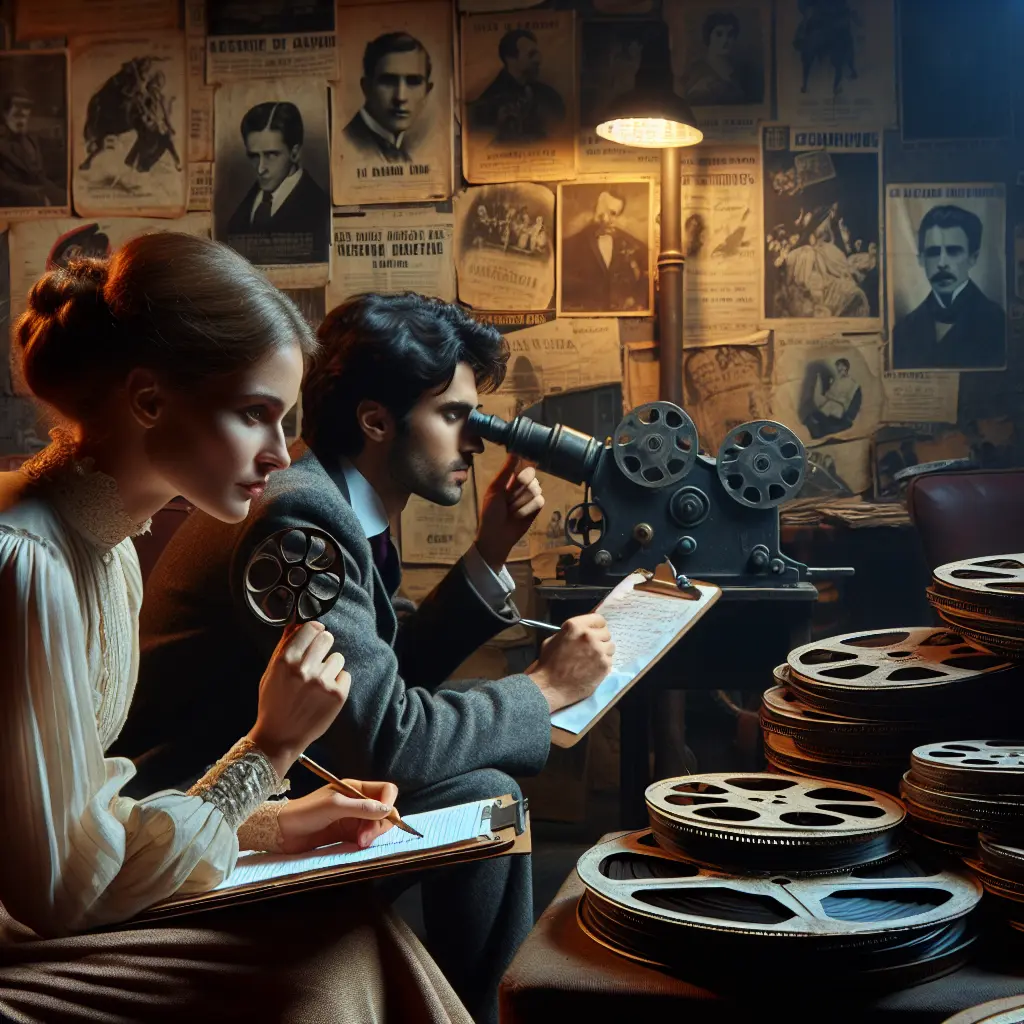
In the era of blockbuster hits and streaming services, period films remain a significant genre captivating audiences with their portrayal of historical events. However, evaluating the accuracy of these films raises a crucial question: How faithfully do they represent the past? This blog delves into the accuracy of period movies, balancing historical authenticity in cinema with the demands of entertainment.
The Search for Perfect Recommendations: A Dilemma with AI Tools
In our quest for tailored entertainment recommendations, AI tools like ChatGPT and Gemini have shown promise. Yet, despite their capabilities, determining the subjective enjoyment of films remains challenging (The Verge, 2024). This is particularly true for period films, where preferences may vary greatly depending on one's interest in historical accuracy versus entertainment value. As we navigate these recommendations, understanding a film's commitment to historical fidelity can significantly influence viewer satisfaction.
Hollywood's Historical Adventures and Misadventures
Legendary Entertainment's adaptation of Neal Stephenson's Seveneves highlights Hollywood's ongoing fascination with blending historical elements with futuristic narratives (Deadline, 2024). Similarly, the excitement surrounding the first 40 minutes of Deadpool & Wolverine demonstrates how films, even those loosely based on historical settings or characters, are scrutinized for authenticity (Collider, 2024).
However, not all ventures into history are well-received. Critiques often emerge about the accuracy of period movies, sparking debates among historians and film critics alike. For instance, the upcoming Alien prequel series has generated buzz not only about its plot but also about its fidelity to the original franchise's lore (Variety, 2024).
Fact-Checking Historical Films: A Necessary Endeavor
The importance of fact-checking historical films cannot be overstated. Misrepresentations can alter public perceptions of historical events or figures, leading to misconceptions that persist in popular culture. As audiences become more discerning, filmmakers must engage in thorough film historical research to enhance the authenticity of their portrayals without sacrificing narrative flair.
Balancing Act: Historical Accuracy vs. Entertainment
One of the most significant challenges in creating period films is balancing historical accuracy with entertainment. Filmmakers often face decisions about whether to prioritize factual precision over dramatic storytelling. For example, The Toxic Avenger remake's controversy over its graphic content overshadows its nods to 1980s cinema, raising questions about where filmmakers should draw the line (Screen Rant, 2024).
Technological Advancements in Enhancing Historical Representation
Advancements in technology have also impacted how historical narratives are told. The new Google TV Streamer, with its enhanced capabilities, offers viewers high-quality viewing experiences of period dramas accuracy (CNET, 2024). This technological evolution allows for more detailed and immersive recreations of historical settings.
The Role of Critics and Audiences in Shaping Film Histories
Critics and audiences play a crucial role in shaping the success and historical reputation of films. The ranking of all 46 Marvel Cinematic Universe movies and TV series by critics illustrates how critical reception can influence public perception and historical legacy (Rotten Tomatoes, 2024).
Evaluating Period Films Accuracy: Case Studies and Scholarly Insights
To further understand period films accuracy, examining specific case studies can be enlightening. Scholarly analysis often reveals discrepancies between cinematic portrayals and historical records. Journals like Cinema Journal and books such as Projecting History: German Nonfiction Cinema, 1967-2000 provide in-depth discussions on the implications of altering historical facts for narrative purposes (University of Michigan Press).
Conclusion: The Continuous Interplay Between History and Film
As we evaluate the accuracy of historical representation in movies, it's clear that this interplay between history and film will continue to evolve. Filmmakers must navigate the delicate balance between staying true to historical facts and crafting engaging stories. Audiences, on their part, must remain critical viewers who appreciate the art of cinema while recognizing its potential to shape historical understanding.
In conclusion, while the quest for perfect movie recommendations might remain elusive as per AI's current capabilities, our engagement with period films will always depend on our individual thresholds for historical accuracy vs. entertainment. As we look forward to more cinematic explorations of history, let us be mindful viewers who seek both knowledge and enjoyment in our film experiences.
Written by Jennifer Baxter, a devoted cinephile and an advocate for preserving the integrity of historical narratives in cinema. Let us continue to question, learn, and appreciate the complex tapestry of history portrayed in films.